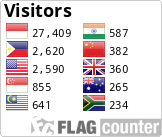PERAN KOMUNIKASI ANTAR BUDAYA DALAM MENINGKATKAN TOLERANSI DI ERA GLOBALISASI: TANTANGAN DAN STRATEGI
Abstract
The main purpose of this study is to explain how cross-cultural communication can increase tolerance and reduce prejudice, especially in corporate and academic environments. Effective cross-cultural communication can bridge differences and build mutual respect. Furthermore, the development of intercultural pedagogical competence encourages further learning experiences through social initiatives and supportive narrative exchanges. This study uses a literature study method to examine various perspectives on intercultural communication and tolerance. Globalization brings cultures together and challenges individuals and institutions to adapt socially and emotionally. Building cross-cultural communication skills is important in creating a harmonious, collaborative, and discrimination-free environment. Tolerance is defined as an attitude of accepting and appreciating differences without negative prejudice. Intercultural communication is understood as the interaction between individuals from different cultural backgrounds, which is increasingly developing due to globalization. Theories such as communication theory and social identity theory are used to understand these dynamics. Tolerance is defined as an attitude of accepting differences without prejudice, which can be built through effective communication. Globalization also influences the dynamics of intercultural tolerance.
Full Text:
PDFReferences
Abizadeh, A. (2023). Tolerance and the Ethics of Identity in Plural Societies. Cambridge University Press.
Alessandro, G., Ramirez, T., & Kim, Y. (2023). Race Dialogues in MedicalEducation: A Global Perspective. Medical Education Review, 57(2), 130–145.
Albada, A., Hurni, M., & Fischer, M. (2021). Cultural Distance and Miscommunication in Global Teams. Journal of Cross-Cultural Management, 18(3), 276–293.
Alkhamees, A., & Alasqah, A. (2023). Cross-Cultural Sensitivity in Patient-Doctor Communication. Saudi Medical Journal, 44(1), 15–22.
Aririguzoh, S. (2022). Cultural Tolerance and Deradicalization in Pluralistic Societies. International Journal of Peace and Conflict Studies, 9(1), 22–35.
Arvanitis, E. (2021). Refugee Education and Cultural Responsiveness in European Schools.Intercultural Education, 32(5), 519–534.
Atmojo, A. E. P., & Putra, R. A. (2022). Intercultural Competence in Language EducationBuilding Tolerance Through Communication. Indonesian Journal of LanguageTeaching, 14(1), 101–116.
Bondyreva, N., Derman, A., & Telyukova, E. (2021). Language as a Means of CulturalCohesion in a Globalized World. Journal of Language and Intercultural
Communication, 21(4), 350–363.
Fretheim, T. (2021). Ethical Dimensions in Intercultural Hermeneutics. Journal of Intercultural Research, 12(2), 111–125.
Kim, H., & Penry Williams, G. (2021). Inclusive Communication and Cultural Diversityin Workplaces. Journal of Organizational Communication, 35(3), 245–260.
Ladegaard, H. J. (2022). Breaking Stereotypes: The Role of Communication in BuildingEmpathy. Intercultural Communication Studies, 31(2), 215–232.
Laskowska, M. (2024). Developing Intercultural Communicative Competence in a GlobalEra. Journal of Intercultural Pragmatics, 21(1), 12–29.
Mehmood, S., Rehman, U., & Latif, F. (2021). The Dual-Edge Impact of Globalization onCultural Communication. International Journal of Global Studies, 10(4), 66–78.
Sahadevan, S., & Sumangala, A. (2021). Bridging Cultural Differences Through
Communication: A Study in Multinational Settings. International Journal of CrossCultural Studies, 9(3), 102–118.
Seok, S., & Nam, J. (2022). Cultural Intelligence and Innovation in Global Workplaces.Asian Journal of Communication, 32(1), 58–77.
Sokol, Y., Patel, R., & Gomez, M. (2021). Reducing Prejudice Through Deliberative Tolerance Models. Peace & Conflict Journal, 27(2), 121–137.
Verkuyten, M., & Killen, M. (2021). Cultural Diversity, Tolerance, and Inclusion in Youth Development. Annual Review of Developmental Psychology, 3, 295–318.
Wolynn, T., & Hermann, B. (2021). Public Education Against Misinformation and Intolerance. Journal of Civic Education, 10(2), 89–101.
Zakaria, M., & Ab Rahman Muton, N. (2022). Code-Switching and Intercultural
Collaboration in Global Teams. Malaysian Journal of Communication, 38(1), 55–74.
Refbacks
- There are currently no refbacks.
Copyright (c) 2025 Naylal Fithri, Nurin Sakinati. B, Jayanti Riaka, Hanatullah Hanatullah, Nur Kholida, Siti Nur. F, Siti Rohmah










